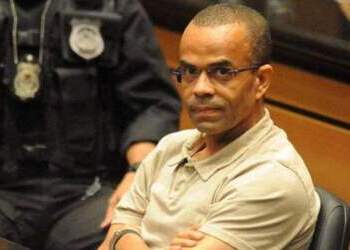The death of a top Red Command leader near Rio de Janeiro raises questions about the success of coordinated attempts to weaken one of Brazil’s most brutal gangs, both materially and psychologically.
On January 13, a police raid in the Parque das Missões community in Duque de Caxias, a significant town in the Rio de Janeiro region, killed three members of the Red Command (Comando Vermelho – CV) and arrested seven more. The most prominent killing was Lindomar Gregório de Lucena, alias “Babuino,” the Red Command’s leader in the city.
The raid also saw the arrests of Babuino’s brother and second-in-command and the man responsible for overseeing the CV’s finances in Duque de Caxias, mostly coming from drug trafficking, extortion, and vehicle theft, according to a police statement.
SEE ALSO: Rage, Rinse, Repeat – The Futile Cycle of Anger at Rio’s Police
Babuino’s death is particularly noteworthy for his connections to Luiz Fernando da Costa, alias “Fernandinho Beira-Mar.” Beira-Mar was once the leader of the CV but has been jailed since 2001.
According to a police statement, Babuino was reportedly considered to be Beira-Mar’s “foster son,” although it is uncertain exactly when the two met. He was overseeing the “Beira-Mar Complex,” a series of CV operations in Duque de Caxias, the former leader’s birthplace.
InSight Crime Analysis
This latest raid against the CV cuts deep for two different reasons: weakening the gang in a key strategic area and undermining the influence and legacy of one of its foremost leaders.
While the CV’s power base has long been among the favelas of central Rio de Janeiro, Duque de Caxias has remained one of its most important locations. A city of around 1 million people north of Rio de Janeiro, Duque de Caxias lies alongside highway BR-40, one of the major arteries connecting Rio to other cities such as Brasilia and Belo Horizonte. The CV has often used this highway to rob cargo trucks, as well as move drugs. It is also right next to Rio’s Tom Jobim international airport, a common transit point for the drugs trade.
However, the CV has faced multiple attempts to wrest Duque de Caxias away from it. First, violence has intensified between the CV and the Pure Third Command (Terceiro Comando Puro – TCP) in the city. TCP has bloodied the nose of its rivals several times since 2018, when it seized control of the Beira-Mar favela, an iconic place within the CV.
According to Globo, militias have also targeted the CV in Duque de Caxias, with at least 20 murders in the town attributed to this feud in the last two years. Militia groups, primarily comprised of retired and active service police and military personnel, have been fighting a long campaign against the CV in Rio state. The CV has been gradually pushed back, losing control of several favelas, until the militias were named the dominant criminal enterprise in Rio de Janeiro in 2020.
There have also been allegations that police operations against the CV have been intended to help allies in the militia take control of favelas controlled by the gang.
The raid on Duque de Caxias may also further dilute Fernandinho Beira-Mar’s influence over the CV. Since 2008, he has been regularly moved from prison to prison, in large part to avoid allowing him to cement any power base within any one jail. However, his exploits and reputation have allowed him to maintain a cult following.
SEE ALSO: Profile of Red Command
According to a report by Globo, in his home city of Duque de Caxias, CV members still use his initials “FBM” in graffiti or social media posts. Beira-Mar even sought to launch his own business in 2019 to sell clothing and cellphone accessories under the “FBM” brand in 2019.
After becoming a CV leader in his early 20s, Beira-Mar soon proved instrumental in expanding the gang’s international reach. He struck deals in Paraguay to supply the CV with a regular flow of marijuana and then fled to the country after escaping prison in the 1990s.
He also moved to Colombia and struck a close relationship with Tomás Medina Caracas, alias “Negro Acacio,” a senior commander in the guerrilla Revolutionary Armed Forces of Colombia (Fuerzas Armadas Revolucionarias de Colombia – FARC). While in Colombia, Beira-Mar studied how to build up a criminal network before importing vast quantities of cocaine into Brazil, making him allegedly the country’s most significant drug trafficker at the time. He was captured by the Colombian Army and deported back to Brazil in 2001, where he has been in jail ever since.
Most recently, Beira-Mar went on a hunger strike in 2021 after complaining of being “tortured” by being left in solitary confinement for six months at a prison in Mato Grosso do Sul.

